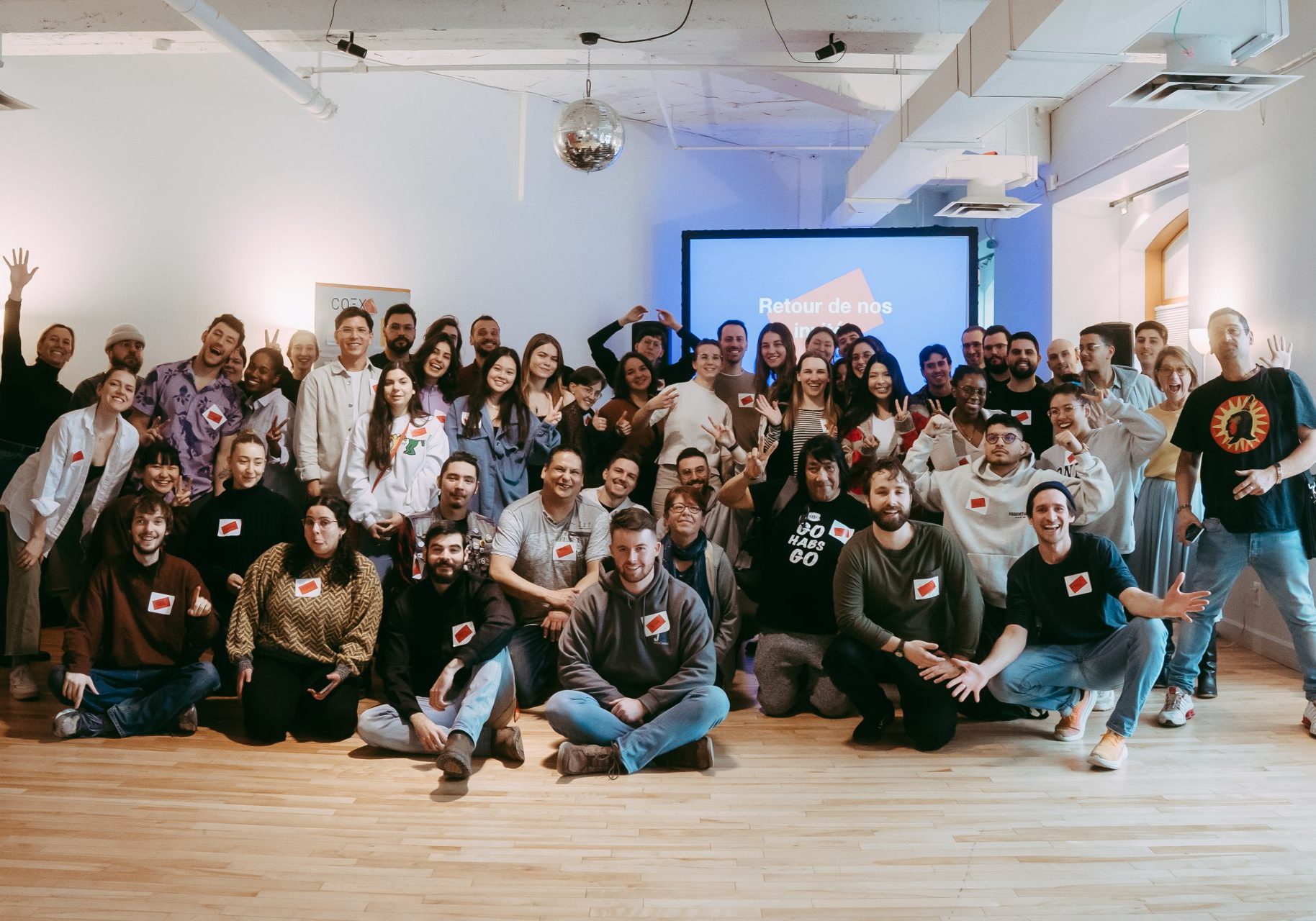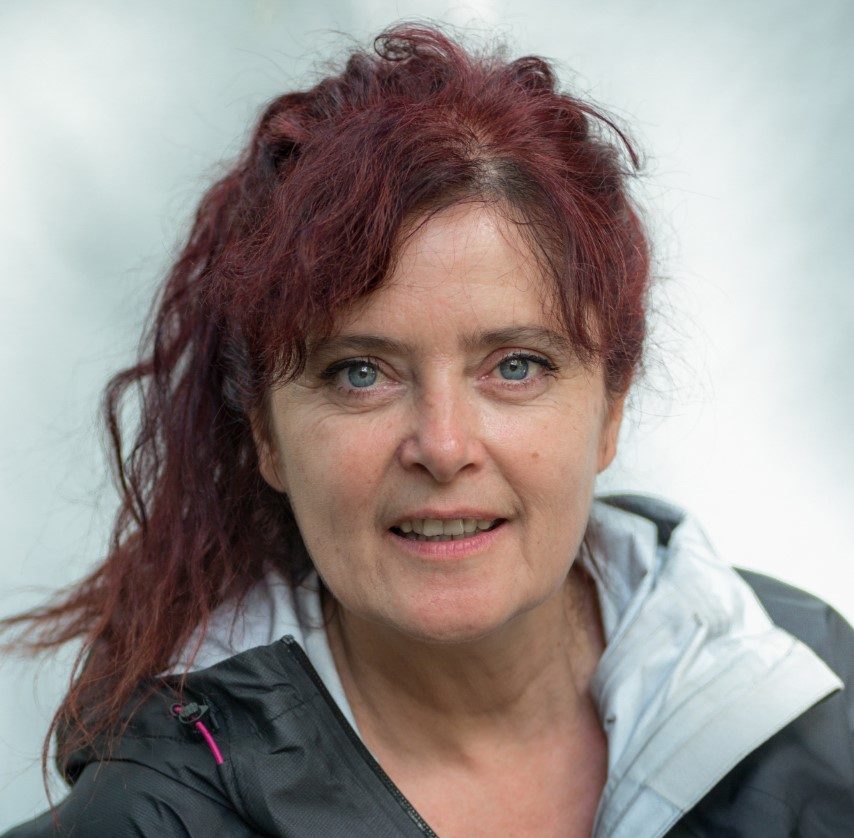The clients
For the very first time, La Factry invited two major Quebec companies to work together on a skills gas pedal project: École de technologie supérieure (ÉTS), a leader in engineering training, and Pomerleau, a leader in Quebec construction. This unique pioneering project also involved a cohort of La Factry students, as well as the Cree community of Waskaganish.
The challenge
The corporate world is undergoing a major transformation. By 2025, 85 million jobs worldwide could be changed or eliminated, and 97 million new ones created. This observation is prompting public and private companies, organizations and individuals to upgrade their skills to meet this challenge.
For managers and employees alike, mastery and acquisition of cross-disciplinary skills-creativity, communication, critical thinking, problem-solving and collaboration-are now essential to successfully navigate these transformations.
The construction and engineering sector is no exception to these changes, of course. Hence the importance of focusing on innovation in order to adapt to the new demands that will revolutionize this industry. So it’s vital for current workers and engineering students alike to start learning creative skills now. “Faced with challenges that are not always technical in nature, the ability to come up with creative solutions, think outside the box and adopt a holistic perspective is becoming crucial,” explains Vincent Melanson, Innovation Manager at Pomerleau.
Last January, Pomerleau proposed an ambitious challenge, in collaboration with the Cree community of Waskaganish, by commissioning Factry to oversee a joint integrative project involving cohorts from ÉTS and Factry.
The proposal
Using cross-disciplinary skills, the project consisted in collectively designing a residence for seniors in the Cree community of Waskaganish. This place of recreation and exchange had to meet the technical criteria of a living environment adapted to native traditions. To accomplish this socially inclusive project, the same specifications (with a few nuances), including architectural, logistical, socio-cultural and sustainable considerations, were given by Factry to the following groups:
– two cohorts of ÉTS students: one supervised by Factry coaches during co-creation workshops, and the other unsupervised. The aim: to observe the role of design thinking in the development of a project led by students at the same level. This work constitutes their end-of-study project, presented to the ÉTS pedagogical team;
– Pomerleau employees, struggling to adapt their work to new medium-term standards in the sector;
– a cohort of Pausien-ne-s, accustomed to working in co-creation workshops in which their cross-disciplinary skills are regularly called upon;
– members of the Cree community of Waskaganish and other communities, at various stages of the project, to ensure that the project respects their values and aspirations.
La Factry’s ambition: to test the impact of its training workshops with young ÉTS students, at the end of their apprenticeship and on the eve of entering the job market. “We need to change the way we teach and integrate soft skills into academic training, to push innovation further,” explains Hélène Godin, President and CEO, co-founder and Chief Creative Officer at La Factry.
When the results of these working sessions were announced, recommendations were formulated by each group of learners and employees, with the aim of improving the teaching of the skills of the future.
The work
The Factry content innovation team designed four experiential and interactive workshops to get participants from different groups to develop their creative skills around a common project.
“Empathy and framing” workshop
Through a listening circle facilitated by Kayleigh Spencer, a civil engineering student and Cree from the Nation of Mistissini, participants were led to reflect on the reality and needs of the Cree Nation. A second listening circle was led by Sylvain Marseguerra, Pomerleau’s native relations specialist.
“Ideation” workshop
Several ideation techniques were coached by the Factry with learners from the Skills Accelerator project.
“Communication and storytelling” workshop
ÉTS learners and Pausien-ne-s worked on communication and storytelling exercises.
“Idea testing and feedback” workshop
This step, crucial in the work of design thinking, enabled participants to reflect on concepts of desirability, viability and feasibility, and to improve the final proposals. Each team then presented its ideas to nine members of different aboriginal communities.
At the same time, two laboratories, involving ÉTS learners and Pausien-ne-s, enabled the development of a network of volunteer participants.
During these workshops, which took place over several days, ÉTS students demonstrated remarkable commitment and enthusiasm. This very first experience in learning the skills of the future proved to be very positive. For their part, Pomerleau representatives carried the brief for this demanding fictitious project.
The result
This collaborative and co-creative effort resulted in a consensual, evolving project, imagined following an exploration of social reality and aboriginal culture. “This networking between different participants had a very beneficial effect on the ideas that emerged,” says Hélène Godin. Especially during the validation process, when learners and aboriginal representatives were able to exchange and validate their ideas. At first, the young people were all a little intimidated by this exercise, but the Cree encouraged them to dare to express themselves.”
An enthusiasm echoed by the learners. “The meetings with people from the aboriginal community were great and so rich. It was a way of understanding the users and embodying the process of reconciliation,” said one Pausian in particular following his experience. During the presentation of ideas, some natives added value by explaining the importance of art in the living environment or the use of noble materials such as wood in a seniors’ residence.
For students who were able to experiment with design thinking and the integration of soft skills in the development of their final-year project, the result proved to be beyond expectations. The organizers of the Factry come from a different sphere,” said one ÉTS student. They made us think about what’s important for human beings: how do users feel? They made us look at projects in reverse or right side up, in their entirety, to get us out of our linearity.”
In concrete terms, the residence is built using sustainable materials, and is LEED v4 certified with a reduced carbon footprint. It implements strategies that promote the circular economy while respecting diversity, equity and inclusion. But what sets it radically apart from other projects of its kind is that the Cree community was consulted upstream to ensure that the residence reflects the specific needs of its users. “Exchanges and meetings should take place in all engineering projects. Users should be involved at every stage. Architects, but also engineers, need to learn from users,” emphasized an ÉTS learner.
In addition to the project, ÉTS learners were able to take part in a number of other experiences as a result of the Accélérateur de compétences project:
– Better understanding of indigenous culture: some ÉTS learners describe the experience as a “plunge into indigenous reality and culture”.
– Enhanced creativity: Future Skills brings many tools to the engineering and construction trades. “Pomerleau’s storytelling and coaching workshops were very useful, and we received some advice that I believe will stay with us for a long time.”
– Much better teamwork: “In engineering, we’re not in a posture conducive to a relationship of listening, helping each other, understanding needs, context, but in a posture of calculations and results. The Factry workshops reminded me, but also the team members, of the importance of teamwork.”
– A better understanding of construction challenges: according to the testimonials, the exchanges were stimulating for the learners, who became aware of the need to also develop human skills to find solutions to integrated approaches and global engineering.
– More women in engineering: in this field, women are generally in the minority. Yet they were over-represented during the workshops. This training would have the collateral effect of attracting more women into these professions.
Integrating future skills for tomorrow’s engineers is more crucial than ever: “In addition to traditional technical skills, it’s vital for future engineers to develop social skills,” says Vincent Melanson, Innovation Manager at Pomerleau. The ability to communicate, collaborate and understand the varied needs of stakeholders is essential.”
Finally, the Skills Accelerator project revealed that the quality, relevance and innovation of the ideas that emerged were enhanced by the co-creation workshops. And that the learners retained the importance of communicating, collaborating and solving problems in a spirit of listening and respect.

